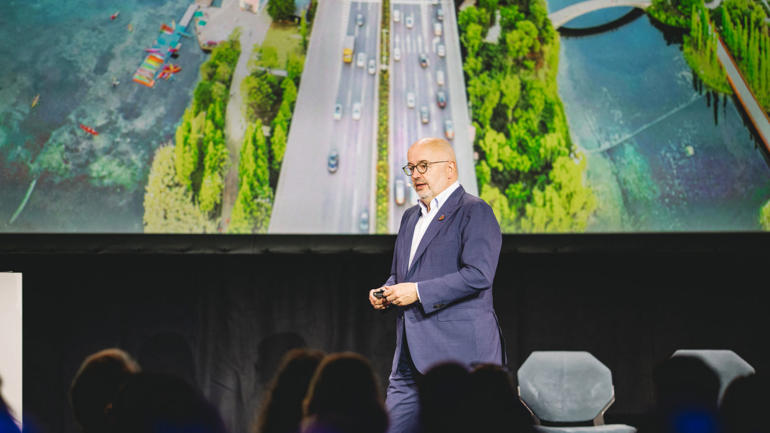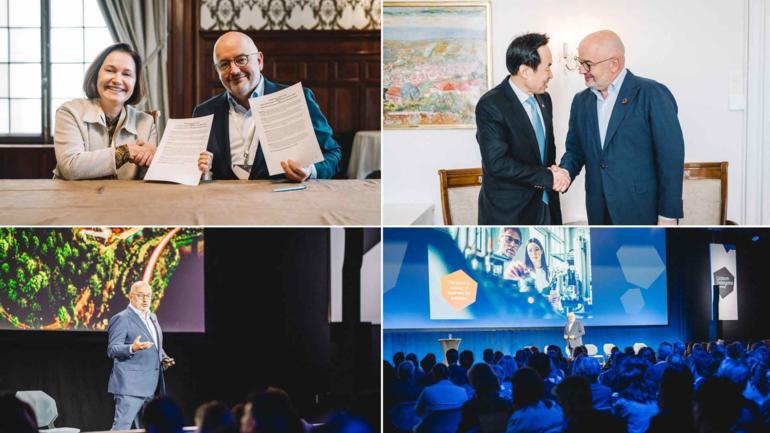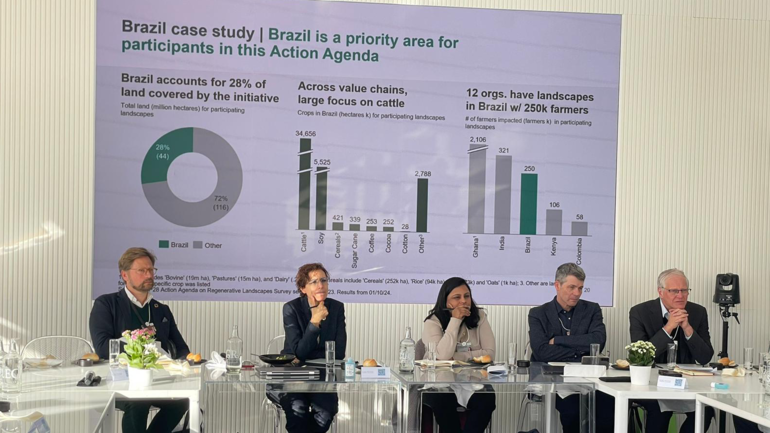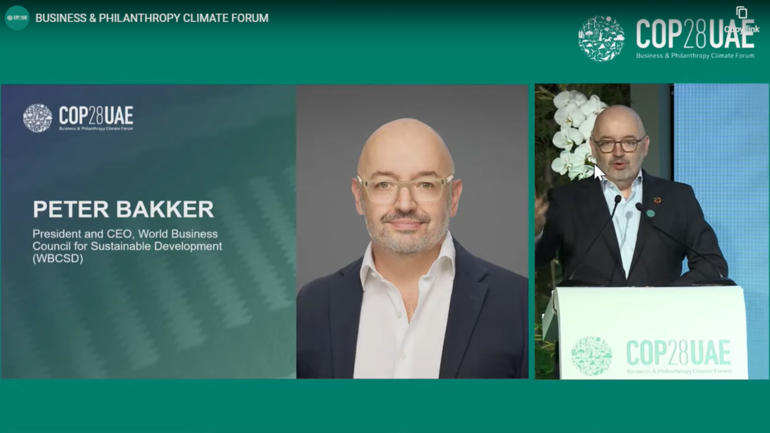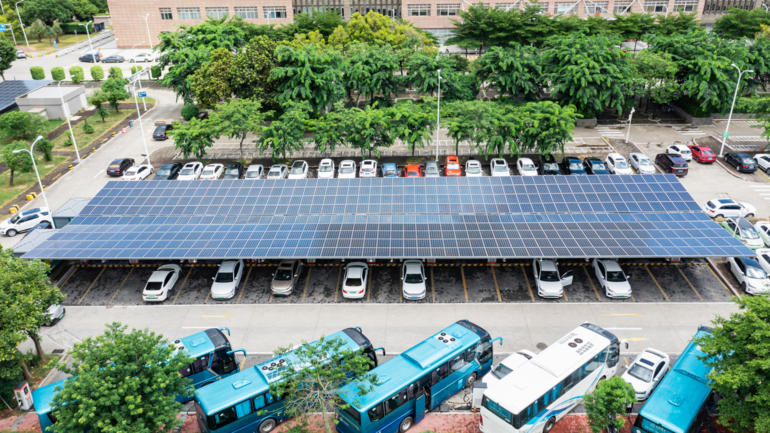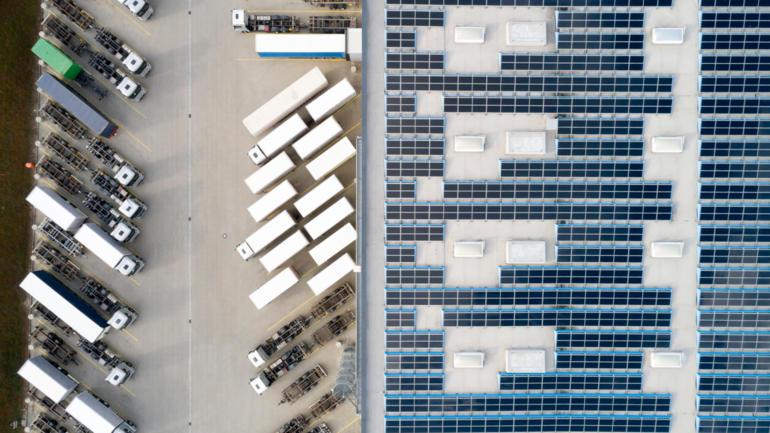What does the future hold for the automotive industry, and what systemic changes are needed to set urban transport worldwide on a sustainable course? These were some of the questions debated during this year's Movin'On Summit, the World Summit on Sustainable Mobility.
Founded by Michelin in 2017, Movin'On brings together more than 300 public and private organizations from 60 countries. The annual Summit gathers mobility thought leaders to anticipate new markets, build shared development scenarios and implement innovative transport solutions. This year, the World Business Council for Sustainable Development (WBCSD) hosted three sessions on mobility decarbonization, commuting behavior change and circularity in the automotive sector.
More and more businesses are committing to mobility decarbonization, and policy pressure to phase out internal combustion vehicles is on the rise. The supply of affordable zero-emission vehicle (ZEV) models is growing, and so is consumer acceptance. This electrification trend has sparked an urgent need to accelerate the deployment of charging infrastructure that is economically, socially and environmentally sustainable by design. Demand alone will require a 15-fold increase in charging infrastructure by 2030. One of the WBCSD sessions at the Summit offered a deep dive into the role of business in enabling and scaling up charging technologies.
“The limited availability of charging infrastructure represents a major obstacle for large-scale adoption of EVs. We need to invest in cross-sectoral collaboration and technology innovation focused on energy flexibility. This will unlock the business case for accelerated deployment of infrastructure and provide opportunities for the real estate, energy and mobility sectors to introduce new services,” said Urska Skrt, Mobility Manager, leading the Mobility Decarbonization project at WBCSD.
While the world is embracing an exponential EV adoption course, electrification alone will not be enough to achieve the necessary emission reduction targets. We also need to stimulate modal shifts through increased digitalization and encourage more sustainable commuting behavior. Companies can have a considerable impact on driving demand for sustainable urban mobility. The second WBCSD session at the Movin'On Summit showed how such business action could look in practice.
“As large employers, companies have a great potential to improve traffic flows and air quality in cities through sustainable corporate mobility policies. By encouraging and incentivizing cleaner and healthier mobility choices, companies can also increase the attraction and retention of talent. With our Corporate Mobility Pact in Lisbon, Portugal, we have been able to create a dialogue between local public authorities and businesses, which is essential for improving sustainability of urban mobility systems,” said Milena Klasing Chen, Mobility Manager, leading the Commuting Behavior Change project at WBCSD.
Building on insights from the Circular Cars Initiative (CCI), the third WBCSD session, hosted with the World Economic Forum and led by Accenture, spotlighted the need to embrace circularity to reach net zero in the mobility sector. Succeeding in this field will require profound collaboration across businesses and policymakers, a philosophy shared with Movin'On and its ecosystem. The new five-level taxonomy for circularity in the automotive sector, developed by CCI, is a first step toward establishing a common language between different stakeholders.
On the last day of the Summit, Peter Bakker, WBCSD President and CEO, provided perspective on the on-going transformation of the automotive industry in a conversation with Florent Menegaux, CEO of Michelin, Patrick Koller, CEO of Faurecia, Omar Abbosh, CEO of Microsoft Services, and Young Tae Kim, Secretary-General of the International Transport Forum.
Peter Bakker spoke about the mindset shifts required to transform the automotive industry in the decade ahead, based on insights from Vision 2050: Time to Transform. He emphasized that leaders everywhere need to change their mindsets toward building long-term resilience, toward a regenerative approach to business and ultimately toward reinventing capitalism. Bakker said “Reinventing our models means putting social and environmental impact and value alongside economic value creation. This will change the way we communicate to capital markets and financiers and it’s a crucial element of getting the automotive industry aligned with a 1.5-degree scenario.”
Bakker also stressed the need for resilience: “Resilience is about anticipating, embracing and adapting to changes and disruptions. Companies must shift their mindsets to recognize that they are only as resilient as the systems they are a part of. Organizations need to anticipate future shocks and strategically plan for disruption. In the transport sector, this is fundamental. How the car, public transit and shared mobility will integrate through digitalization and built environment and infrastructure design will determine how resilient our mobility systems are."
Florent Menegaux continued on the topic of finding the right balance between people, planet and profit, as outlined in the Michelin Group’s “All Sustainable” Vision. “We shouldn’t set value creation in opposition to the good of people and the planet. The businesses that will survive in the future will be the ones who succeed in accommodating these three dimensions at the same time,” said Menegaux. He also mentioned the significance of cooperation: “We need strong interaction within the private sector. Companies can be partners, competitors, customers and suppliers simultaneously. We also need to extend the discussion between the private and public sectors. This is the spirit of Movin’On, the collaborative work and the mix of different viewpoints, to co-create innovative solutions.”
Achieving climate targets and Sustainable Development Goals will require an unprecedented level of business leadership and collaboration, and the Summit demonstrated that companies are ready to take on the challenge. The transport sector is one of the main hurdles, but with a shared vision, systems thinking and mindset shifts, real change is possible. WBCSD will continue to work with Movin'On to build ecosystems of action and create momentum toward future-proofing the automotive industry and delivering safe, clean, efficient and accessible mobility globally.



